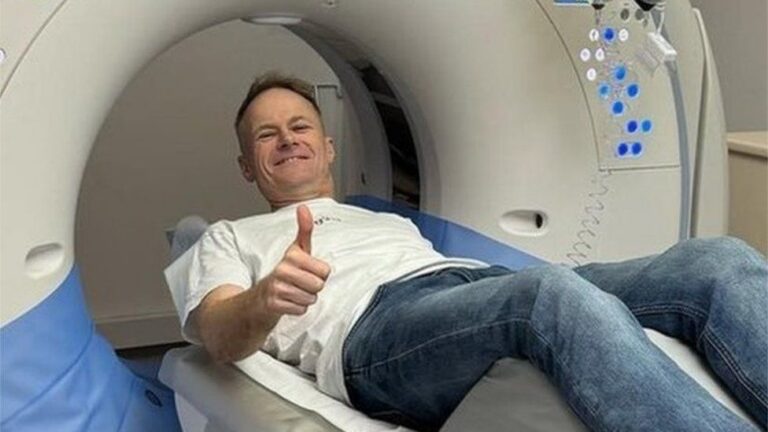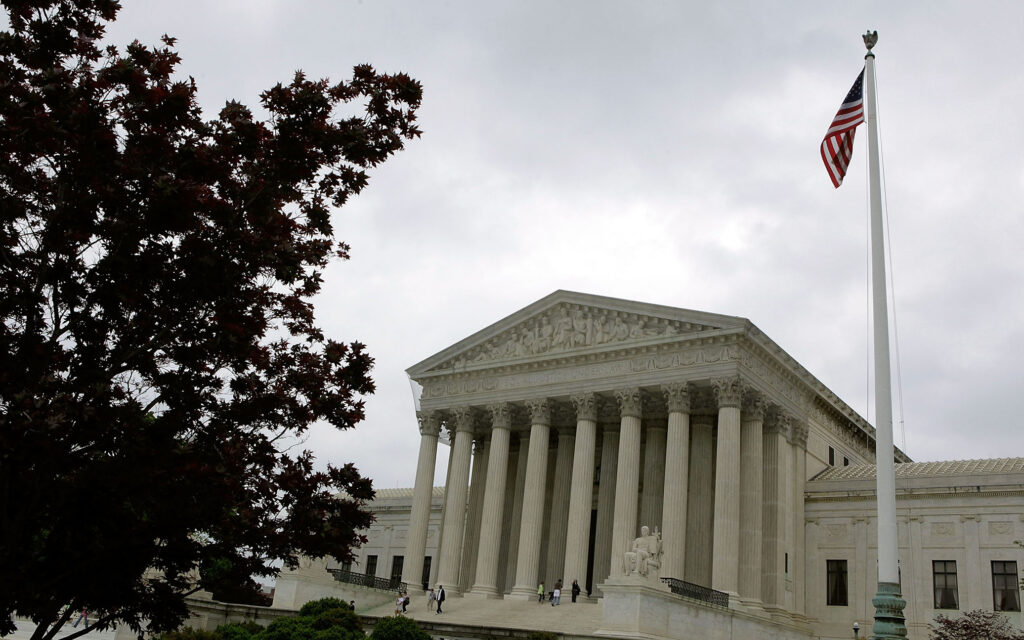Australian doctor Richard Scolyer, renowned for his groundbreaking work on melanoma, has shared promising news a year after receiving a pioneering treatment for glioblastoma. This subtype of brain cancer is notoriously aggressive, with a grim prognosis for most patients. However, Prof Scolyer’s latest MRI scan revealed no signs of tumor recurrence, marking a significant milestone in his journey. Reflecting on the momentous occasion, the 57-year-old admitted feeling nervous before the scan, underscoring the emotional weight of the experience.
“I’m absolutely thrilled and delighted… couldn’t be happier,” exclaimed Prof Scolyer, expressing his joy at the positive outcome of his recent scan.
As one of the nation’s most esteemed medical figures, Prof Scolyer shares the prestigious title of Australian of the Year with his colleague and close friend, Georgina Long. Their groundbreaking contributions to melanoma research have garnered widespread recognition. Serving as co-directors of the Melanoma Institute Australia, their focus on immunotherapy has revolutionized treatment outcomes for advanced melanoma patients globally. Prof Long, along with a dedicated team of doctors, is now applying their pioneering research to Prof Scolyer’s treatment, with the hope of achieving a similar success in his battle against glioblastoma.
In the realm of melanoma treatment, Prof Long, herself a distinguished medical oncologist, and her team uncovered the enhanced efficacy of immunotherapy through combination drug regimens administered prior to tumor removal surgery. Last year, this groundbreaking approach was extended to Prof Scolyer, marking the first instance of a brain cancer patient receiving combination immunotherapy before surgery. Additionally, Prof Scolyer became the inaugural recipient of a personalized vaccine tailored to his tumor’s unique characteristics, further augmenting the cancer-fighting potential of the drugs.
Despite enduring a challenging period of treatment earlier this year, grappling with epileptic seizures, liver complications, and pneumonia, Prof Scolyer reports a notable improvement in his health. “I’m feeling healthier than I have in a long time,” he shared, revealing his return to daily exercise routines, often consisting of a leisurely 15km jog.
Acknowledging the ongoing nature of his battle with brain cancer, Prof Scolyer remains optimistic about his prognosis. “While my brain cancer isn’t cured, it’s reassuring to know that it hasn’t resurfaced yet, affording me more time to cherish moments with my wife Katie and our three wonderful children.”
The promising outcomes thus far have ignited significant anticipation that Prof Scolyer and Prof Long might be nearing a breakthrough capable of benefiting the approximately 300,000 individuals diagnosed with brain cancer worldwide annually.
While acknowledging the slim odds of a definitive cure, the duo remains hopeful that their experimental therapy will extend Prof Scolyer’s lifespan and eventually transition into clinical trials for glioblastoma patients. Currently, they await the review of a scientific paper detailing the initial outcomes of Prof Scolyer’s treatment. However, Prof Long underscores that the journey toward developing an approved and regulated treatment regimen is still far from fruition.
“We’ve amassed a wealth of data, laying the groundwork for the next phase, aiming to assist more individuals,” she explained. “We’re not quite there yet. Our primary focus is to demonstrate the efficacy of this pre-surgery, combination immunotherapy strategy in a broader population.”



























